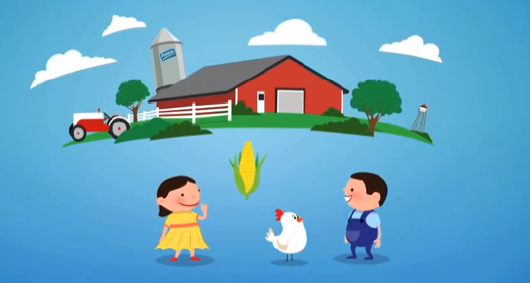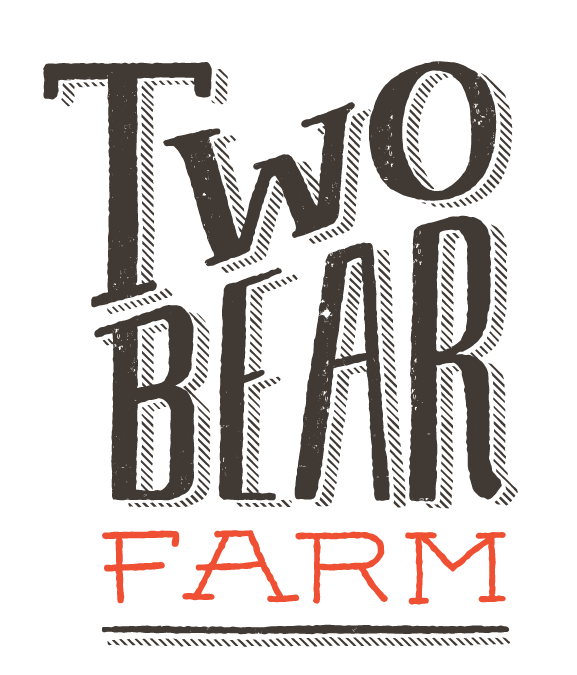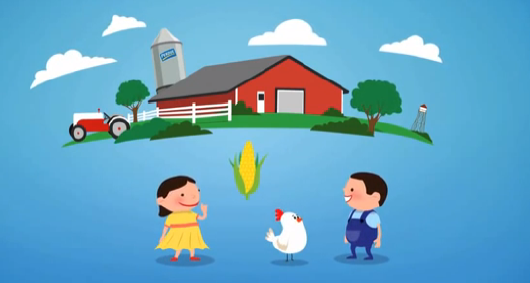Just a quick note…if you have just signed up for a CSA and are wondering what this is all about, just letting you know that I am doing a series this week, and you can find all of the newsletters on the right side of our homepage at twobearfarm.com
I walked into the house the other night after posting the blog on nutrition to find Rebecca listening to an episode of the Your Undivided Attention podcast w/ guest Yuval Nora Harari, other of various books such as “Sapiens”. It’s a great book, and it was a great podcast if you’re interested.
He said two things in the first couple of minutes that really stood out to me. First, the human species is a storytelling animal. We use stories to build and structure our communities and societies in order to find common cause and to maintain some semblance of order. We often have a hard time processing the truth if it is bad, and we would much rather be given a positive story to believe in rather than be told no, or to be told a depressing truth. Gulp.
That’s always a challenge when writing about our food system in this country…there is only so much bad news people want to hear. But I think a positive story does benefit by being put into context, and that has been one of my goals with this series. While I have talked about some painful truths along this journey, I want you to know that this series ends tomorrow with a good story!
But for today, I wanted to hit on one more topic that affects consumers.
Which brings me to the second item mentioned in the podcast. It was a quote from Michael Vassar….. “the existential risk to humanity might be marketing because marketing represents the decoupling of how we see the world from what the world actually is”. And food is ground zero for this concept. Our industrial food system is not pretty. The way we confine and treat animals; the amount of chemicals we spray on food; how we treat farm labor, soil, and water; how we use antibiotics…it can be downright ugly, degrading, exploitive, and unhealthy. Yet when we go to the grocery story, everything looks all neat and tidy. So many of us are disconnected from where our food comes from (more so than at any other time in human history), that we are prey to marketers. That carton of eggs from a confinement chicken house has a cute cartoon picture of a small farm with free roaming chickens on the box, so we feel good about buying them, never knowing or thinking about the reality.

We have famous actors, catchy jingles, humor, and pastoral imagery all convincing us that we should buy food without asking where it comes from or what it’s made of. Matthew Mcconaughey is a hot item in Hollywood these days with the publishing of his book “Green Lights”, so when he tells you in a funny ad during the Super Bowl that you should buy 3D Doritos, should you listen?
At some point in history, I would like to think the role of marketing was to inform potential customers about what your business had to offer, to explain a product or service, and to convince the consumer on how it will improve their life. As the global economy has expanded, marketing has devolved into exactly the opposite. Now marketing makes you feel like you need something, but it completely obscures where the item came from, whether it’s good or bad for you, and what the impacts are from its production and consumption. Instead of bragging about how good something is, marketing now distracts us from the actual product by playing on our emotions. Let’s face it, it would be hard to enjoy that chocolate bar or the new carpet in your house if you knew it was made by child labor. I get it. So, instead the commercial focuses our attention elsewhere.
Have you ever walked into a Whole Foods Market? Amazing, isn’t it? It just oozes healthy eating, and talks all about the importance of nutrition and organic. But as you start to walk around and look for organic food, guess what? Very little of what they sell is organic. Most of it is still highly processed foods. Worse yet, people flock to their hot and cold food bars in search of a fresh made, organic meal. Same deal…virtually all of the ingredients in the prepared food are not organic and come from the same industrial food system as every other store. This is the very decoupling of what we assume in our minds vs. the reality of the situation.
Don’t get me wrong, the food at Whole Foods may be the best food available in the area. In many communities, there is not a better choice available. It is certainly better than eating from the fry counter at the local gas station. But this branding is problematic on a couple of fronts. First, the consumer thinks they are getting a different product than they really are, and that might have health consequences. Second, consumers think they are supporting a certain type of agriculture (local or commercial organic), yet their dollars are not actually supporting those types of agriculture. So instead of the consumers money pushing for better food, the consumer thinks they already have access to good food, and the agricutural landscape does not shift or evolve to reflect their values.
And this is not simply a global economic issue. There are many businesses in our local community who want to hop on the bandwagon of local and/or organic food because it is the fastest growing food segment in America, and so they advertise in a way to imply or suggest that they are committed to sourcing ingredients that are grown locally or grown organically. And it’s great that some businesses actually do strive to achieve this goal as best they can. One example I’ll throw out is Mountain Valley Foods in Kalispell, which is truly committed to carrying as much organic food as possible, and it makes up a large proportion of what they sell. And there are many others that do a good job as well.
Unfortunately, there are also many local businesses that put wording on their websites or menus to suggest they use local ingredients, but then do very little to live up to that. The actual proportion of local or organic food they serve is much smaller than what you, the customer, are led to believe. This is called Greenwashing. It is rampant in our society, and it is a source of great frustration to me.
In order to not be controversial or unneighborly, I will use an example of a small restaurant that is no longer in business ( at least not with the same name or in the same location). This cafe had a sign on the wall when you walked in that said “We support local farms. Some of our favorite are Two Bear Farm, Raven Ridge, etc.”. This cafe never bought a single item from Two Bear Farm or Raven Ridge that I know of, at least not through the normal wholesale channels. I fully recognize that the sign didn’t actually say that they bought ingredients from our farms, just simply that they “support us”. Like maybe they believe in what we do, or they tell customers to go shop at our farm stands? That’s great, but is that what the customer standing at the counter interprets? I don’t think so. I think the customer is expecting that the vegetables in the meal they are about to order have a high probability of coming from one of the local farms listed on the sign, and that’s what the owner of the cafe want them to believe. This is a very gray ethical area, where a business can imply something to mislead potential customers, without actually lying to the customer. And the end result is that the customer is misled in their decision making. So the customer doesn’t get what they think they are buying. And for the small farms who are really trying to support the local restaurants who are serving local food, this is highly frustrating, because these businesses are co-opting the movement. Greenwashing prevents people who are trying to support a cause from actually supporting that cause.
So here’s an idea. Why not strive for a food system that tells a positive story, AND reflects actual reality!!! Novel idea, right?!….the old win/win scenario. It sounds quaint and idealistic, doesn’t it? But I’m tired of profit being used to justify all the win/lose relationships we have in our society. Things are getting a bit dysfunctional, and it’s time for a change.
I fully realize that right now there is not enough local and/or organic food available in our community to serve everyone who wants access to it. And that is important to acknowledge. But the only way to increase the supply, is to increase the number of farms, and that only happens with an increase in demand for the products from consumers. And greenwashing interferes with that feedback loop.
There was a time in Montana when 90% of the food consumed in the state was grown in the state. Over the past 100 years, that number has shrunk to just 10%. Instead of Montana farms and ranches producing food to feed to Montanans, much of the ag industry consolidated and shifted to growing commodity crops for processing and for export to other countries, overlooking local markets entirely. I think this is a huge lost opportunity for farmers and communities.
As I watch canola field after canola field on this side of the valley go up for sale for housing development, I am saddened that most farmers do not operate in a system that allows them to make a living or to hold onto their land to keep it in food production. But what if we can rebuild local agriculture in our community so that we do have enough production to feed our own community, and we can keeping working agricultural lands on our landscape? Where farming could become a viable career with profound benefits on community and landscape health. That would be a positive story based on a positive reality…..full transparency would be encouraged!
It took us 100 years of moving in the wrong direction to get where we are at, and I fully recognize it could take us over 100 years to relocalize our food system, build the infrastructure we need, and increase the number of farmers committed to the cause. Will this happen? I’d be afraid to see the odds that Vegas would put on it. We are too busy trying to colonize Mars. But I think it’s a future worth fighting for. I’ve seen the impacts of the industrial system on our society, and we are in need of a shift back to a more holistic approach.
Bottom line, for years I’ve been urging the public to embrace the power they wield as consumers. Too many people don’t seem to recognize that their daily purchases shape the world around them. My goal is to raise awareness about this issue. Not because it would benefit our farm, but because it has profound effects on every aspect of our collective lives.
It’s a big complicated world out there, and I’ve been painting with some pretty broad brushstrokes. But I am a firm believer that any positive change we hope to see in our food system is going to have to be driven by every day people making good choices….from the ground up. And in order to engage as informed consumers, we need to acknowledge our role, understand the issues, get better at asking the right questions, understand the tricks of the advertising trade, and learn to view marketing with a critical eye…. seeing through and calling out misinformation (greenwashing) along the way.
No pressure, but our future depends on it 🙂









I’ve loved this entire series, Todd (and also Your Undivided Attention is the only podcast where I never skip an episode — the Harari one was good but all of them are necessary and important and super well done). We all need this information and these kinds of reminders — without all of us to support our local farmers, truly support them, our communities and landscapes will not survive. Thank you and Rebecca for all the hard work you do!
The series that you have written and shared with us is important to get out to as many people as possible.
I appreciate the generous amount of time, study and passion that went into this.
Thank you!
Word. I super-tiny-disagree with just one thing. There could be enough access to LOCAL & ORGANIC food IF everyone gets OUTSIDE and PLANTS a mutha-lickin’ GARDEN!! This takes the power out of marketing and the mystery out of growing food. Container gardens, community gardens, so many opportunities for self sustenance. Gardening in Montana is hard (very hard) work; I liken it to raising a kid(s) for 4 months. 🙂 You might not get every color of the rainbow to flourish but…being in the soil, seeing things grow, having an insect drop in to say hello…this can connect us to the world in an entirely different way and provide a new respect for what food actually is (…and due to failures, motivate us to sign up for a farm share too! LOL).
THANK YOU TODD. Education provides roots.
THIS: https://www.wmfe.org/florida-man-uses-covid-stimulus-payment-to-build-garden-spread-message-of-food-independence/174005
Oh, I completely agree with you, and thanks for pointing that out. I’ll admit, even though it was my love for growing my own food that led me to try farming as a career, I often fail to talk about gardening and how important it is. The only thing better than Knowing your Farmer, is Being your Farmer!!!
Such a great post! Your perspective and the way you put things into context always teaches me something new. I will definitely start asking more questions about which foods are actually sourced locally on the odd occasions we eat out. Meanwhile we’ve been waiting like impatient, panting, drooling dogs for our CSA shares to begin.
My current rant while driving is something like, “I wish we could buy that land/acreage and give it to a RO farmer.”